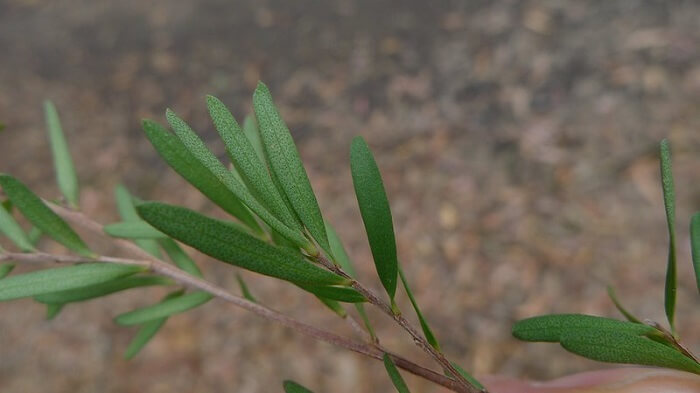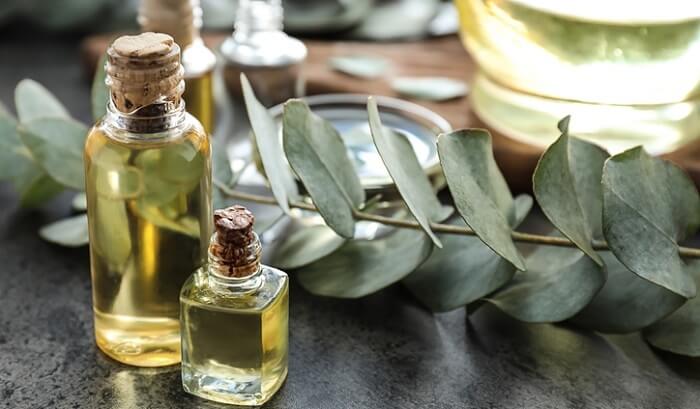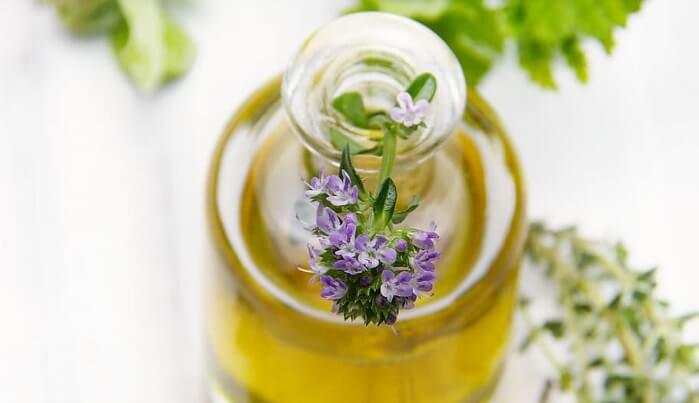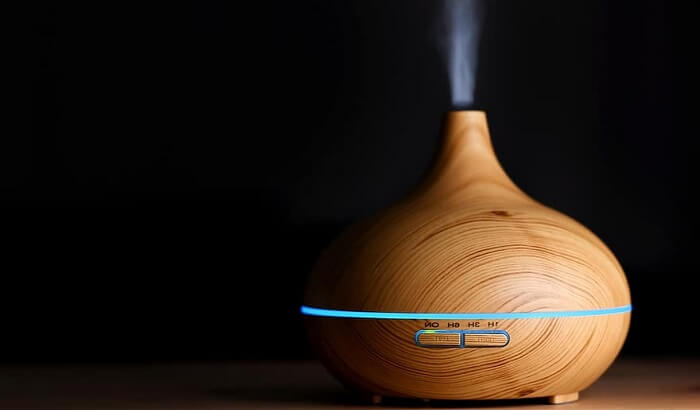Viruses are responsible for a number of illnesses that cause a wide array of symptoms. The common cold, the flu, many respiratory illnesses, and more are all caused by viruses. And more recently, we’ve all learned about the existence of another virus: COVID-19.
Contrary to what many believe, viruses cannot survive on their own. They actually require a host to thrive and replicate. As we have seen with the current COVID-19 situation, this specific virus is only active on inanimate objects for a certain amount of time—from hours to days. This means that a surface that has been exposed to COVID-19 is infectious only during a specific window of time, depending on the type of surface that the virus is on.
While viruses are unfortunately a common part of life, there are many steps you can take to help lower your risk of contracting different viruses and/or reducing the severity of your symptoms. Optimizing the health of our bodies is crucial for staying healthy and minimizing our risk to not only COVID-19, but other viruses as well. Some simple, yet effective ways to keep our immune systems functioning properly include:
- Washing hands regularly and thoroughly
- Eating a whole-food diet
- Getting regular exercise
- Getting quality sleep
- Eliminating any foods that trigger sensitivities or health issues
- Drinking plenty of water
- Reducing stress
- Taking vitamins and supplements
- Spending plenty of time outside
- Meditating
Essential oils contain antiviral properties

Not surprisingly, essential oils can also be beneficial when dealing with certain viruses as well. There are numerous essential oils that contain antiviral properties. However, current research on the antiviral effects of essential oils is lacking and thus far, scientific studies have been conducted on only a few essential oils regarding their actions against a small number of viruses.
More research is needed to determine if there are essential oils with broad spectrum antiviral properties. Put simply, just because an essential oil has been shown to be active against one virus doesn’t mean it will be effective against all viruses. However, just because researchers haven’t been able to extensively study broad-spectrum antiviral properties doesn’t mean they don’t exist.
As scientific research expands, we will most definitely learn more about the unique properties of essential oils and just how active they are against numerous viruses and pathogens.
The best antiviral essential oils
As mentioned before, there are numerous essential oils that have antiviral properties. Although there are many more than the mentioned below, for this article I’ve compiled a list of what I believe to be 9 of the best antiviral essential oils. I’ve also included research that supports the claims that have long been made by essential oil professionals, which is that essential oils are naturally antimicrobial and that they can be useful when dealing with specific viruses.
1. Tea Tree

Tea tree is by far one of the most popular and widely used essential oils. Its popularity is largely due to its versatility, as it can be used in a wide range of situations. But one of the really interesting things about tea tree is that even though it’s a potent microbial, it’s still gentle enough to use around young children.
Tea tree is antibacterial and antifungal, and it’s also easily one of the best antiviral essential oils. In fact, a study conducted in 2012 showed that tea tree exhibited significant antiviral activity and was even successful at deactivating an airborne influenza virus when used in aerosol form.1
Some good ways to use tea tree for its antiviral properties are to include it in homemade cleaning products or to diffuse it into the air during cold and flu season.
2. Oregano
Oregano is one of my favorite antiviral essential oils. If someone in my house has been sick or I’m needing some extra potent antimicrobial power, oregano is the oil I reach for.
Research shows that oregano can be effective for certain types of viruses. For example, a 2014 study found that the main component in oregano essential oil—carvacrol—showed antiviral activity against a norovirus that affects mice and even inactivated the virus within an hour of exposure.2
To use oregano, I suggest combining it in small amounts with other essential oils and diffusing it or using it to clean surfaces that are touched frequently. However, because it is so strong, it should be used with caution and never around pregnant or breastfeeding women. Additionally, it should always be diluted properly before topical use.
3. Eucalyptus

Eucalyptus is commonly used by essential oil enthusiasts for its antiviral properties. Actually, it’s my go-to when I’m dealing with a cold sore. A 2009 study found that eucalyptus, thyme, and tea tree, as well as their main components showed antiviral activity when exposed to HSV-1 (herpes simplex virus type 1).3
Eucalyptus has a number of uses, especially when dealing with viruses. It can be used topically for cold sores or in chest rubs for respiratory viruses, it can be diffused into the air, or it can even be added to cleaners and soaps.
Eucalyptus is certainly one of the best antiviral essential oils and should be included in every essential oil user’s repertoire. However, it should be used with caution and never around the faces of children.
4. Cinnamon
I find myself using cinnamon essential oil quite frequently, especially during cold and flu season. Not only is it a wonderful deodorizer and air purifier, it’s also antibacterial, antifungal, and antiviral. It’s also frequently used in anti-germ blends that are sold by essential oil companies. Additionally, a study conducted in 2017 found that an essential oil blend containing cinnamon and 3 other oils showed antiviral activity against the a flu strain and HSV-1.4
Because it blends well with many essential oils, often enhancing the aroma, cinnamon is perfect for diffuser blends and air-purifying sprays. Just remember that it can be a skin sensitizer, so it should always be used in low dilutions if being used topically and should never be used on sensitive or damaged skin.
5. Melissa

Melissa essential oil is well-known as one of the best antiviral essential oils. In fact, it’s often considered to be the most effective essential oil for cold sores, due to its antiviral activity against HSV-1. However, research has also found that it has shown antiviral effects against HSV-2 and even avian influenza A virus.5 6
The downside to melissa essential oil, however, is the cost since it’s one of the more expensive essential oils. But, if used in moderation, even a small bottle can last for quite some time.
If cost isn’t an issue, melissa can be used in a number of ways, from topical formulations to diffuser blends and even in cleaning products. Or if the high price is a deterrent, then I recommend using melissa more conservatively and saving it for topical applications, as well as for occasional use in diffuser blends.
6. Niaouli
Like tea tree, niaouli is a member of the Melaleuca genus and even shares some similar characteristics to tea tree oil. It’s antibacterial and antifungal and is generally considered to be a powerful antiviral essential oil. Even though research is lacking, niaouli is often used in situations dealing with respiratory viruses and illness, as well as the flu.
I personally find the aroma of niaouli to be more pleasant than tea tree oil. My favorite way to use this oil is in diffuser blends to help fight off or aid in the recovery of illness, but it could just as easily be used in soaps, hand sanitizers, cleaners, and more!
7. Thyme

Thyme is a potent essential oil that contains not only antiviral properties, but also antibacterial and antifungal properties as well. It’s often used for colds, the flu, respiratory illness, and more. Research has shown that thyme essential oil exhibits antiviral activity against not only HSV-1, but also the flu, making it a great option to consider during cold and flu season.7
The aroma of thyme is quite strong, so I like to use it in small amounts combined with other essential oils. It can easily be in diffuser blends or topical applications or even added to homemade cleaning products for disinfecting.
8. Ravintsara
Ravintsara may not be as well-known as some of the other essential oils on this list, but it packs a powerful punch when it comes to antiviral properties. More research is needed, but it is commonly believed among essential oil users and professionals that ravintsara is a notable essential oil to have during the winter months when colds, flus, and other viruses are rampant.
Diffusion is a great option to consider for ravintsara, but please note that the oil should be used with caution and never around young children.
9. Bay Laurel
Bay laurel is an incredibly intriguing essential oil. It has a number of therapeutic uses ranging from helping with emotional issues to wound healing and even immune system support. It’s also a powerful antiviral essential oil.
More research is needed on bay laurel, but it’s often used for things like colds, the flu, cold sores, respiratory issues, and more.
As bay laurel’s main constituent is 1, 8-cineole, it should be used with caution around young children.8 It can be used topically for cold sores, or it would do well in a diffuser blend to help purify the air.
Antiviral essential oil blends

Below, I’ve created 3 different diffuser blends that can be used specifically for their antiviral affects. However, feel free to substitute other essential oils based on your needs and preferences.
Antiviral blend #1
I use this blend frequently in my home to purify the air and fight germs. I like that it helps to deodorize the air as well as purify it!
- 5 drops cinnamon essential oil
- 3 drops eucalyptus essential oil
- 1 drop thyme essential oil
- 1 drop oregano essential oil
Combine the above essential oils in your diffuser. Adjust the number of drops as needed according to your diffuser’s instructions.
Antiviral blend #2
This is a great antiviral blend that would be especially beneficial if an older child or adult is sick with a respiratory illness.
- 4 drops niaouli essential oil
- 3 drops ravintsara essential oil
- 2 drops bay laurel essential oil
Combine the above essential oils in your diffuser. Adjust the number of drops as needed according to your diffuser’s instructions.
Antiviral blend #3
In this blend, the pricier melissa essential oil is offset by the more affordable oils of tea tree and eucalyptus. Even so, this is an antiviral blend that I recommend only using occasionally since it does include a costly essential oil.
- 4 drops tea tree essential oil
- 4 drops eucalyptus essential oil
- 2 drops melissa essential oil
Combine the above essential oils in your diffuser. Adjust the number of drops as needed according to your diffuser’s instructions.
Essential oils have natural antiviral properties
Every day, more research is being conducted on the impressive abilities of essential oils. However, much more research is needed to see just how active different essential oils and their properties are against the numerous viruses we are exposed to. Until then, we can use the research that has already been done, as well as the wisdom of essential oil experts when it comes to dealing with viruses.
Since there are many essential oils that contain antiviral properties, there are a number of options to choose from when it comes to utilizing their antiviral affects. Discovering your most biologically coherent essential oils with a ZYTO galvanic skin response scan can help you determine which antiviral and other oils to choose to help maintain your overall health and wellness. Incorporating antiviral essential oils along with other healthy habits will go a long way in minimizing the effects of viruses and may even help reduce the chances of catching one.
 About Nicole Stine
About Nicole Stine
Nicole Stine is a certified herbalist who has numerous aromatherapy and natural health certifications. She is passionate about using herbs and essential oils safely and thoroughly enjoys researching and writing about natural health, as well as creating her own formulations.
Sources:
1. Pyankov, O.V., E.V. Usachev, et al. “Inactivation of Airborne Influenza Virus by Tea Tree and Eucalyptus Oils.” Aerosol Science and Technology 46, no. 12 (2012): 1295–1302.
2. Gilling, D.H., M. Kitajima, et al. “Antiviral efficacy and mechanisms of action of oregano essential oil and its primary component carvacrol against murine norovirus.” Journal of Applied Microbiology 116, no. 5 (2014): 1149–63.
3. Astani, A., J. Reichling, & P. Schnitzler. “Comparative study on the antiviral activity of selected monoterpenes derived from essential oils.” Phytotherapy Research 24, no. 5 (2009): 673-679.
4. Brochot, A., A. Guilbot, et al. “Antibacterial, antifungal, and antiviral effects of three essential oil blends.” MicrobiologyOpen 6, no. 4 (2017).
5. Allahverdiyev, A., N. Duran, et al. “Antiviral activity of the volatile oils of Melissa officinalis L. against Herpes simplex virus type-2.” Phytomedicine 11, no. 7-8 (2004): 657–61.
6. Pourghanbari, G., H. Nili, et al. “Antiviral activity of the oseltamivir and Melissa officinalis L. essential oil against avian influenza A virus (H9N2).” VirusDisease 27, no. 2 (2016): 170–78.
7. Wińska, K., W. Mączka, et al. “Essential Oils as Antimicrobial Agents—Myth or Real Alternative?” Molecules 24, no. 11 (2019): 2130.
8. Tisserand, R., R. Young, & E. Williamson. Essential Oil Safety: A Guide for Health Care Professionals (Edinburgh: Churchill Livingstone/Elsevier, 2014).